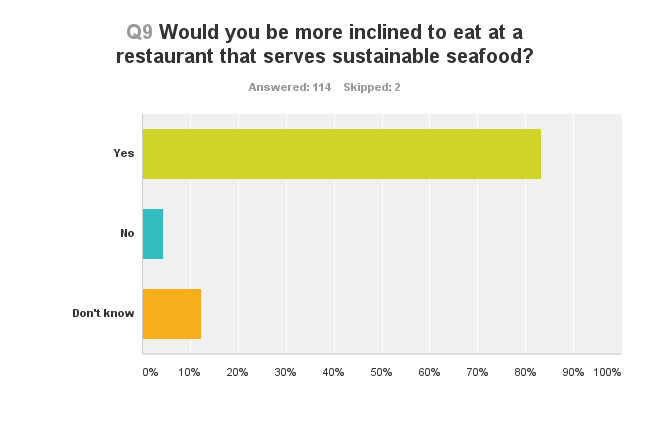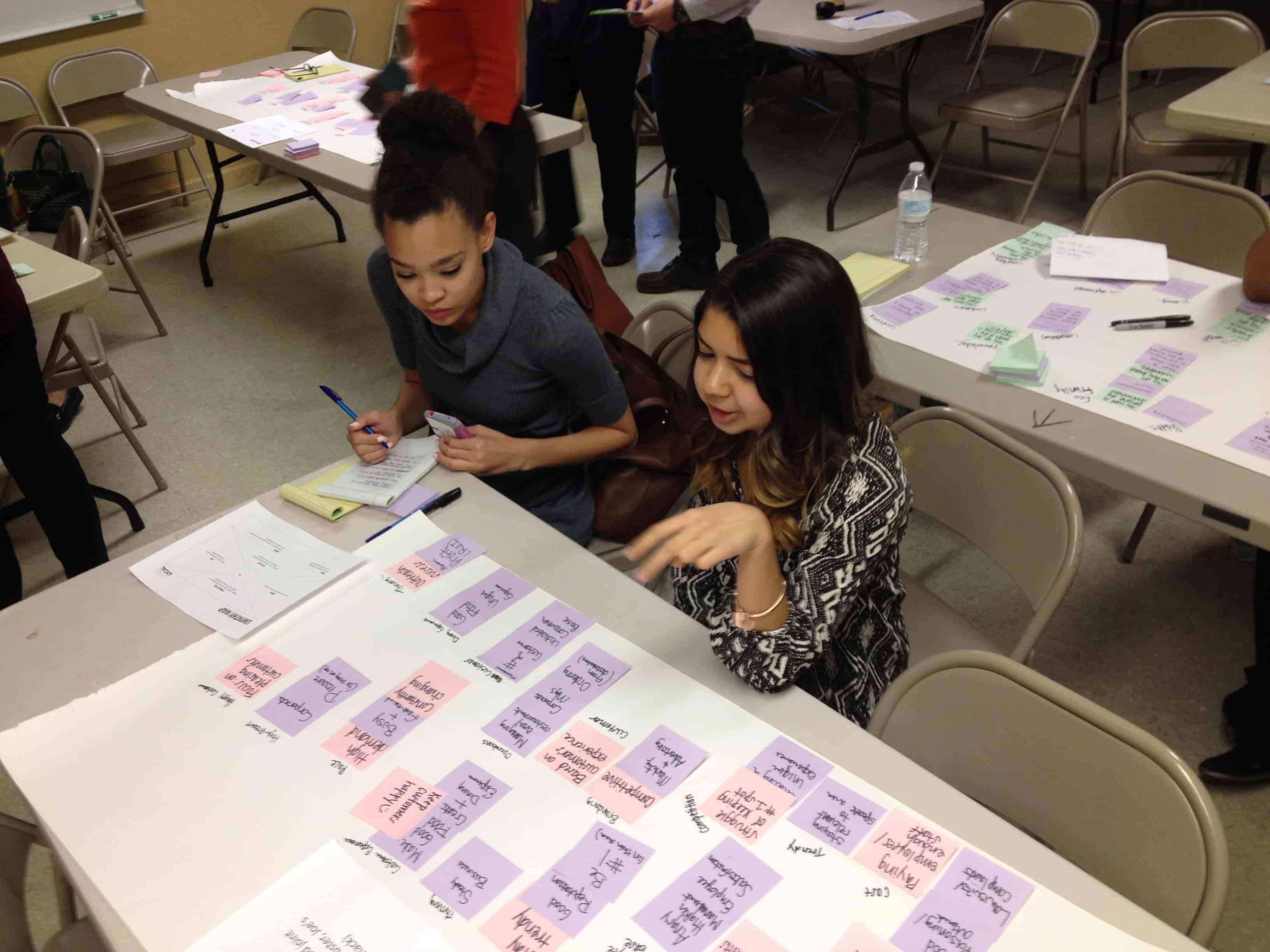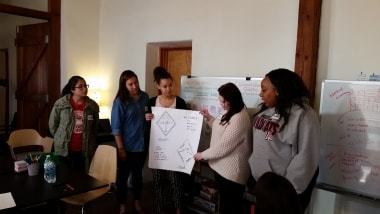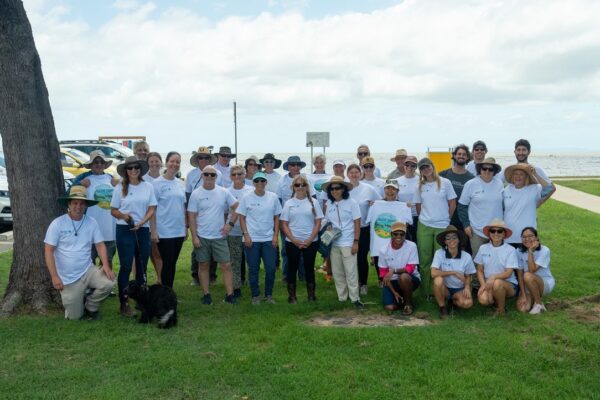This guest post is submitted by Debbie Colodner, Director of Conservation Education and Science from the Arizona-Sonora Desert Museum, and is the first in a 3-part series on their Innovative Solutions Grants+ project where they are partnered with Leading for Good to see if they can move the needle on sustainable seafood in Tucson, Arizona.
Some might think sustainable seafood an unlikely conservation focus for a desert city. However, Tucson was just designated the first UNESCO “World City of Gastronomy” in the United States, so there is a strong community focus on food, including seafood. For more than a decade, The Desert Museum has partnered with Monterey Bay’s Seafood Watch program to educate its audiences about declining fisheries and marine habitats, with particular attention to the unique sea at the heart of the Sonoran Desert, the Gulf of California.
In previous efforts here at the Desert Museum, we found visitors not very willing to download the Seafood Watch app, but quite willing to take a printed card, and very positive about the idea of using it. Yet we also have heard that using the cards or app has been problematic (e.g. too confusing, too much time, sellers don’t know the answers) and we weren’t seeing any evidence that our efforts had led to larger changes in local restaurants and markets. So we wondered, what else can we do? Perhaps we could work with some of what research by The Ocean Project and others tells us are the most innovative change makers and consumers on the planet – millennials? Perhaps with some enthusiastic millennials we could work closer to the supply side – with not just changing their own buying habits, but also reaching out to restaurants? Asking these questions led us to apply for an Innovative Solutions Grant!
Getting started
We decided to begin by connecting with some local millennials who are interns in the Leading for Good Program. These interns are college students who want to make a difference in the local community, and, as such, joined this 16-week program for 10 hours each week. Together we’ve created the “Tasting Sustainability” project.
- As a primary goal, the interns are aiming to engage and persuade local restaurants to take action by altering their menus, and, ideally, becoming Seafood Watch partners, with the hope of recruiting six new restaurant partners by the end of the project.
- As a secondary goal, the Museum hopes to deepen its engagement with our local millennials, and learn how to work more effectively with millennials to move the needle on this and other conservation issues as well.
To help get the interns off to a quick start, Desert Museum staff previously surveyed some students at the University of Arizona. We know our sampling was biased toward students already tuned into environmental issues, based on the classes surveyed, but we found the results nonetheless encouraging. Out of 116 students, 73% reported that they were already generally aware of sustainable seafood efforts, and, important for our project, they also indicated that they would be more likely to eat at restaurants that serve sustainable seafood, whether or not they eat seafood!
Armed with this survey data, and with some additional training by LeadLocal’s Kristin Wisneski, and a Sustainable Seafood “bootcamp” by Desert Museum Education Specialist Julie Xelowski-Brooker, the interns now have started their research by talking with local restaurant owners. Here’s an excerpt from their blog, which can be found in full here.
Our collaboration with the Arizona-Sonora Desert Museum and Monterey Bay Aquarium’s (MBA) Seafood Watch is now in full swing and we are excited to be part of something that is not your normal approach to creating change… We are the Leading for Good interns and…we plan on measuring the success of (our) project in a few different ways.
- Increase the number of Tucson restaurants serving and promoting sustainable seafood on their menus. Ideally, increase the number certified by MBA’s Seafood Watch.
- Understand what truly motivates or inhibits vendors from becoming certified.
- Reflect on our own journey to becoming changemakers in the community.
In the next weeks, the interns will be summarizing and using the research they are doing with restaurant owners to finalize their restaurant outreach and recruitment plan. Meanwhile at the Museum we are also exploring what incentives and partnerships we might be able to offer to restaurants, and how we might encourage more millennials to engage in this effort, and others like it. Stay tuned for a view from the “test kitchen” next time.





